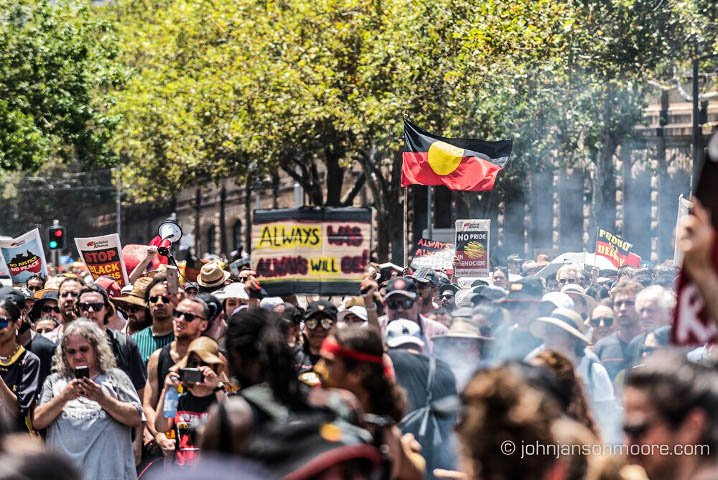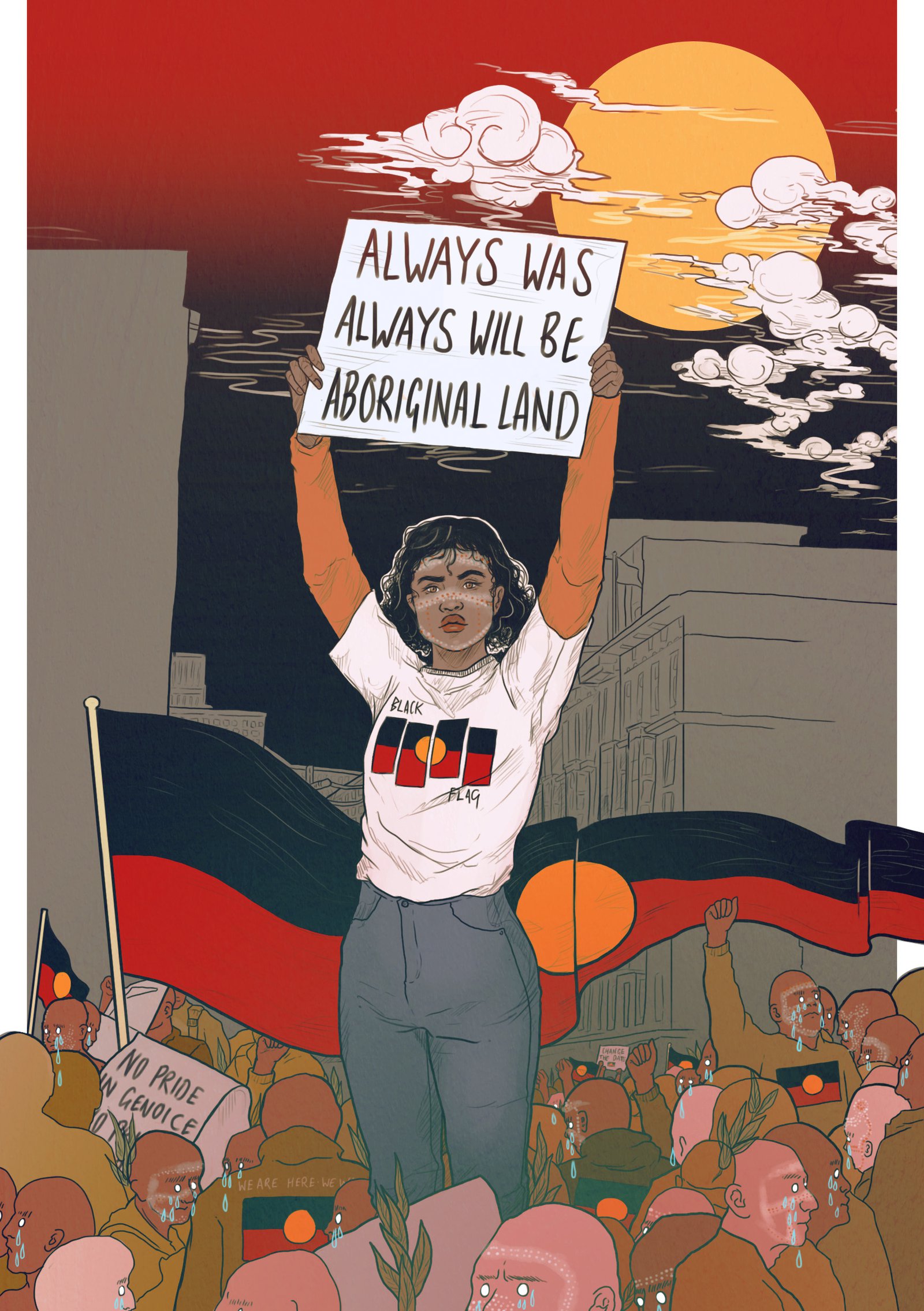Always Was, Always Will Be, Aboriginal Land
Laura McBride is a Wailwan and Kooma woman and Director, First Nations, at the Australian Museum.
On this page...
“Always Was, Always Will Be Aboriginal Land” is an important statement within First Nations communities as it reasserts that the very first footprints on this continent were those belonging to First Nations peoples, and that their sovereignty of this Country has never been ceded. It is a clear declaration that First Nations people are still here and are never leaving. A statement of resilience, survival, deep connection and celebration.

The late Uncle William Bates (Barkandji) talks to a group of people at the Weinteriga Station opening after it was purchased by the Traditional Owners, 1985. Image: Bates family
Image: Bates family© Bates family
The phrase originated during the 1980s Aboriginal land rights movement in far-western New South Wales. Barkandji people were fighting for legal recognition and rights as sovereign owners of their homelands. The late Uncle William Bates (pictured) was an Barkandji land and legal rights activist. Along with other community members, Uncle William led the campaign that saw the first national park in NSW returned to Traditional Owners, amongst many other achievements for his people. In 1974 he became the first Aboriginal Legal Service field officer employed in Far West NSW (leading the breakaway along with Tombo Winters, Steve Gordon, and Uncle Alfie Bates in 1977, which resulted in the establishment of the Western Aboriginal Legal Services) and rallied together communities and land councils to pool funds and start buying back their traditional lands. ”Always Was, Always Will Be”, the now ubiquitous catchcry, was born during this time.
On one of the many trips out on Country during this land rights campaign, Uncle William’s father, Uncle Jim Bates, became excited and started telling stories of his Country and land. Uncle William said, "Dad, it’s not your land anymore, whitefellas own it," and Uncle Jim replied, "No, they only borrowed it; it always was, and always will be Aboriginal land."
Uncle William’s father, Uncle Jim Bates, became excited and started telling stories of his Country and land. Uncle William said, "Dad, it’s not your land anymore, whitefellas own it," and Uncle Jim replied, "No, they only borrowed it; it always was, and always will be Aboriginal land."
“Always Was, Always Will Be” is now often chanted at different gatherings, protests and rallies as a reminder that First Nations people have and will continue to fight for their lands and their rights. It continues to respond to the lack of recognition of First Nations sovereignty that is at the core of much of this nation’s structural inequalities and marginalisation.

© John Janson-Moore
"Always Was, Always Will Be" was selected as the theme for the 2020 NAIDOC Week to reference First Nations peoples’ deep connection to these lands, since the year will already have many Australians reflecting on the last 250 years’ of history due to the 250th anniversary of Cook’s “discovery” of Australia. This theme also presents an opportunity for everyone to hear and learn the First Nations’ 65,000-plus year history of this country – which is also an important part of Australian history.

© Charlotte Allingham
The Australian Museum has worked with several First Nations peoples to translate “Always Was, Always Will Be Aboriginal Land” into languages from their respective Countries, reflecting their own heritage and connections to land. The Australian Museum recognises the integral nature and importance of language to First Nations peoples and how languages have developed in rhythm with the land and its features; representing direct connections to Country. The languages included in this series come from south-east Australia.
This article appeared in Explore magazine, Winter 2021. View the whole issue here.












